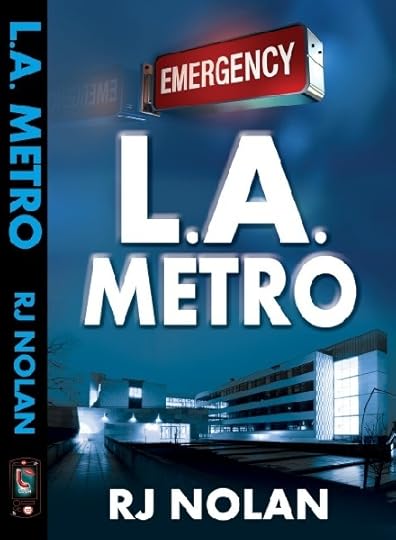Jae's Blog, page 49
November 28, 2011
OTR award nominations
Over the Rainbow Books is a committee of the GLBT Round Table of the American Library Association (ALA).
The members of the committee are librarians who select a list of recommended books every year. The bibliography reflects the LGBT experience and is meant for adult readers. It includes fiction, but also categories such as art, biographies, essays, poetry, and non-fiction.
There are 140 books nominated for 2012′s OTR Annotated Bibliography, and one of them is my novel Hidden Truths. Here's the complete list of nominated books.
Filed under: Hidden Truths, News Tagged: Hidden Truths, Over the Rainbow Books








November 27, 2011
Cyber Monday
This year, L-Book starts Cyber Monday on a Sunday.
If you are still searching for Christmas presents (even if it's an early Christmas present for yourself), head over to http://l-book.com.
My publisher, L-Book, offers 10% off on every book (paperback, e-book, l-book) today and on Monday.
Filed under: L-Book








November 24, 2011
Venice
In the spirit of showing more photos of Europe, I thought I would share a few photos from my trip to Venice.


A free slideshow by Smilebox
Filed under: Uncategorized Tagged: Venice








November 23, 2011
More participle problems
I've blogged about dangling participles in September.
But participles can cause mayhem even when they are not dangling. Incorrect use of participles is one of the mistakes that I find much too often in fiction.
So what's the problem?
Present participles are used to describe actions that happen at the same time (= simultaneous actions). If one action happens after the other (= sequential actions), you shouldn't use a participle.
CORRECT: Holding the tray steadily, Annie approached Drew.
Since she can hold the tray and approach Drew at the same time, these are simultaneous actions and the participle reflects that. Nothing wrong with that sentence.
WRONG: Parking her car, she walked into the house.
First, she parks the car, then she walks into the house. These actions don't happen at the same time, so using a participle to connect those two actions is incorrect.
I often find incorrectly used participles with dialogue too.
WRONG: "Don't tempt me," she said, laughing.
Since she can't talk and laugh at the same time, you should rewrite the sentence.
CORRECT: "Don't tempt me." She laughed.
There are two exceptions/tricks when you want to use a participle for sequential actions:
You can use a preposition: After parking her car, she walked into the house.
You can use what is called the perfect participle: Having parked the car, she walked into the house.
Most often, it might be better to rewrite the sentence, though. Too many participles create a monotonous rhythm.
By the way, you can use the "find" function in MS Word to highlight all your present participles and other words ending in "-ing". That makes it easier to weed out all the overused and incorrectly used participles. Here's the link to the old post.
Filed under: writing tips Tagged: dangling participle, participles








October 23, 2011
Kindlegraph
 Now that so many readers are switching to reading e-books, you might think there's no way for them to have authors sign their books. But now there is… kind of.
Now that so many readers are switching to reading e-books, you might think there's no way for them to have authors sign their books. But now there is… kind of.
Kindlegraph is a relatively new platform that enables authors to do virtual book signings of e-books (or any book, for that matter).
Readers can request signatures and personalized inscriptions from authors who have a Kindlegraph account.
The Kindlegraph can be sent to the reader's Kindle, but you don't need a Kindle (or any e-reader) to get a Kindlegraph. The pdf file can also be sent to your e-mail address. Since the Kindlegraph is a separate document, you also don't need to own the book to have the author sign it.
Kindlegraph seems like a pretty cool feature. The only thing I don't like is that you have to have a Twitter account to use Kindlegraph, but that might change in the future.
If you want to get my Kindlegraph, visit my Kindlegraph site and I'll gladly sign your book.
Filed under: News Tagged: Kindlegraph




 [image error]
[image error]


October 11, 2011
New review of Hidden Truths
Nan Hawthorne, a fellow writer and reader of historical fiction, reviewed Hidden Truths over at Bosom Friends, a review site for fiction with lesbian protagonists and themes.
Here's the link to the review.
Filed under: Hidden Truths, Reviews Tagged: Hidden Truths [image error]







September 30, 2011
New release from RJ Nolan
My publisher, L-Book, has just released two new books, including "L.A. Metro" by RJ Nolan.
"L.A. Metro" started out as a popular online story but has been thoroughly rewritten, extended, and edited. Here's a summary:
 Dr. Kimberly Donovan's life is in shambles. After her medical ethics are questioned, first her family, then her closeted lover, the Chief of the ER, betray her. Determined to make a fresh start, she flees to California and LA Metropolitan Hospital.
Dr. Kimberly Donovan's life is in shambles. After her medical ethics are questioned, first her family, then her closeted lover, the Chief of the ER, betray her. Determined to make a fresh start, she flees to California and LA Metropolitan Hospital.
Dr. Jess McKenna, LA Metro's Chief of the ER, gives new meaning to the phrase emotionally guarded, but she has her reasons.
When Kim and Jess meet, the attraction is immediate. Emotions Jess has tried to repress for years surface. But her interest in Kim also stirs dark memories.
They settle for friendship, determined not to repeat past mistakes, but secretly they both wish things could be different. Will the demons from Jess's past destroy their future before it can even get started? Or will LA Metro be a place to not only heal the sick, but to mend wounded hearts?
You can contact RJ via her website or Facebook page.
Filed under: L-Book Tagged: L-Book, L.A. Metro, RJ Nolan








September 18, 2011
Story length
I know many readers still think of novel length in pages, but that is not a reliable measure since page count is influenced by font, font size, margin width, white space between lines, etc. Depending on the formatting, you could have 150-800 words on a page.
With the spread of e-books, page count is becoming an even more unreliable measure of story length. The number of words on a page varies widely with the e-reader, file type, formatting, and zoom level.
File size (kb) is even less accurate since it's influenced by the size of the cover art.
Therefore, the best measure of book length is word count.
Different publishers may vary on the exact word count they consider a short story, novelette, or novel to have. The Science Fiction Writers of America uses the following definitions:
short story: up to 7,500 words
novelette: 7,500-17,500 words
novella: 17,500-40,000 words
novel: 40,000 words and more.
It's not just a matter of word count, though:
Short stories give u s a glimpse into a moment in the life of a character. Novellas have room for the development of one or two characters over a longer stretch of time. Novels can support multiple characters and subplots and cover larger areas and time spans.
s a glimpse into a moment in the life of a character. Novellas have room for the development of one or two characters over a longer stretch of time. Novels can support multiple characters and subplots and cover larger areas and time spans.
In August, I set out to write a short story for an anthology. Well, if you know the length of my novels, you can probably guess how that endeavor turned out. The "short story" is now a novella with 30,000 words (and counting). I personally find it easier and more interesting to write novellas or novels than short stories. A large part of what motivates me to write is developing the characters and that's easier to do in longer works.
I did manage to finish a 4,600-word story last night, though. Finally, a short story! 
Filed under: Jae's writing process, writing tips Tagged: novel, novelette, novella, page count, short story, story length, word count








September 16, 2011
Review — "Jericho" by Ann McMan
Bedazzled Ink
Will be published in September 2011
412 pages
Syd Murphy, a librarian, relocates to the little town Jericho in Virginia after her almost-ex-husband cheats on her. A flat tire stops her before she  even reaches Jericho, and she's rescued by Maddie Stevenson, Jericho's doctor.
even reaches Jericho, and she's rescued by Maddie Stevenson, Jericho's doctor.
Maddie has returned to Jericho after her father, the local physician, died two years ago and she took over his medical practice.
Syd and Maddie become fast friends, and Syd, who has only planned on staying for eighteen months to set up a library in Jericho, becomes more and more involved in the community.
"Jericho," Ann McMan's debut novel, is a satisfyingly long read with likable, three-dimensional main characters and a quirky cast of supporting characters. The romance is developed at a slow pace, so readers can witness the love between them growing instead of the characters just hopping into bed on page two.
The dialogue is witty and laugh-out-loud funny at times.
I read the online version, but I'll buy the book once it's published too.
I just had one tiny issue with this novel: The characters drink a LOT of wine.
Otherwise, it's a captivating romance that I highly recommend.
Filed under: Reading Tagged: Ann McMan, Bedazzled Ink, Jericho, review








September 11, 2011
Dangling participles
I'm sure most writers have heard of the infamous dangling participle. Most of us have even created a few. So what exactly is a dangling participle?
What is a participle?
Participles are verbs ending in –ing (present participle) or—except for irregular verbs—in –ed (past participle) and functioning as adjectives. Since they are verbs, they describe actions or state of beings, and since they function as adjectives, they modify nouns.
Examples:
The washed dishes (past participle).
The broken record (past participle).
The smiling man (present participle).
The confusing explanation (present participle)
What is a participial phrase?
A participial phrase is a phrase containing a (past or present) participle.
Examples:
Exhausted after twenty hours of work, he collapsed as soon as he got home.
Floating in the pool, she looked up at the blue sky.
What is a dangling participle?
Like all modifiers, participles need to go next to the noun they modify. If the noun the participle modifies is merely implied, not clearly stated, the participle is left dangling and ends up modifying the wrong subject.
Examples:
Slipping into bed, Keile was still on Haydn's mind.
It's Haydn, not Keile, who's slipping into bed.
Rewrite: Slipping into bed, Haydn still thought of Keile. Or: When Haydn slipped into bed, Keile was still on her mind.
Tugging at it again, it refused to budge.
"It" is not the subject doing the tugging.
Rewrite: She tugged at it again, but it refused to budge.
Sitting across from the other woman, the customary evasion came easily.
The customary evasion is not sitting across from the other woman.
Rewrite: Since she sat across from the other woman, the customary evasion came easily.
Dragging in a long breath at the harsh command, Becky's eyes snapped open.
Body parts are a great source for dangling participles. Clearly, Becky's eyes can't breathe.
Rewrite: At the harsh command, Becky dragged in a long breath and her eyes snapped open.
A disheveled mass of red hair popped from under the covers, gasping for air.
Hair can't breathe either.
Rewrite: Sue's disheveled mass of red hair popped from under the covers. She gasped for air.
So how do you avoid dangling participles?
The best advice is to use participles sparingly. Overusing participial phrases—dangling or not—is a sign of an amateur. If you do use participles, check to see if the subject of the main clause is the same person committing the action in the participial phrase and place the participle as close to the noun it modifies as possible.
Filed under: writing tips Tagged: dangling participle, participial phrases















